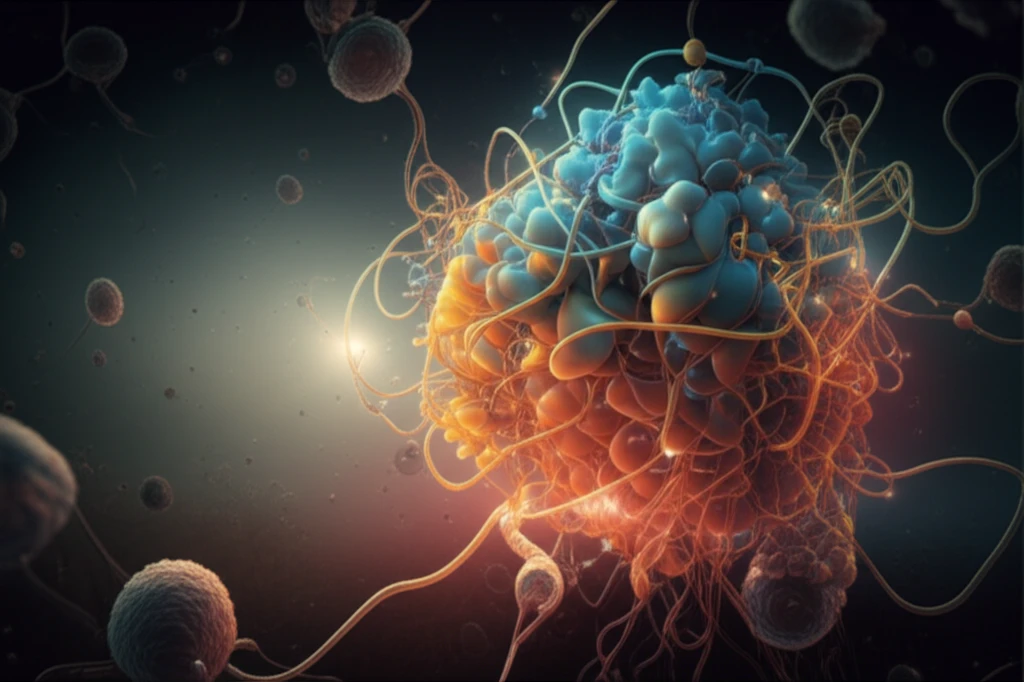
Esophageal Cancer Breakthrough: New Hope in Predicting and Combating Tumor Growth
"Scientists identify CDKL3 as a key player in esophageal cancer, paving the way for targeted therapies and improved patient outcomes."
Esophageal cancer ranks among the most lethal cancers globally, with esophageal squamous cell carcinoma (ESCC) being the most prevalent subtype. Despite medical advancements, the prognosis for ESCC patients remains poor, highlighting the urgent need for novel therapeutic strategies. Understanding the intricate mechanisms driving ESCC development is critical to improve patient outcomes.
Cell proliferation, the rate at which cells grow and divide, is a key characteristic of cancer. Cyclin-dependent kinase-like 3 (CDKL3), a protein serine kinase involved in regulating cell growth and differentiation, has emerged as a potential player in cancer development. While its role has been explored in other cancers, its specific function in ESCC has remained largely unknown.
This article translates a recent study investigating the role of CDKL3 in ESCC. By examining CDKL3 expression and its impact on cell growth, apoptosis, and invasive capabilities, researchers aim to provide insights into its potential as a therapeutic target. Furthermore, the analysis of patient data seeks to correlate CDKL3 expression with survival rates, offering a more comprehensive understanding of its prognostic value.
How Does CDKL3 Influence Esophageal Cancer Cells?

The research team's investigation uncovered that CDKL3 is significantly overexpressed in ESCC tissues and cell lines. To explore its functional role, they employed a lentivirus-mediated RNA interference (RNAi) approach to silence CDKL3 expression in TE-1 cells, a human ESCC cell line. The impact of this silencing was then assessed on various cellular processes.
- Reduced Cell Proliferation: Silencing CDKL3 markedly inhibited the proliferation of TE-1 cells, suggesting its importance in tumor growth.
- Cell Cycle Arrest: The cell cycle progression was disrupted, with cells accumulating in the S-phase, indicating a halt in DNA replication and division.
- Inhibition of Invasion: The invasive capabilities of ESCC cells were significantly attenuated, implying a role for CDKL3 in metastasis.
- Increased Apoptosis: Silencing CDKL3 promoted apoptosis, or programmed cell death, in ESCC cells, indicating its potential to restore normal cell turnover.
The Future of CDKL3 in Esophageal Cancer Treatment
The culmination of this research points towards CDKL3 as a promising therapeutic target in ESCC. The study demonstrates that high expression of CDKL3 correlates with poor prognosis, emphasizing its role in tumor progression. By targeting CDKL3, researchers hope to develop novel therapies that can effectively inhibit tumor growth, reduce metastasis, and improve patient outcomes.
Further research is warranted to fully elucidate the role of CDKL3 in ESCC and to identify the most effective strategies for its therapeutic targeting. This may involve developing specific inhibitors of CDKL3 or exploring combination therapies that target multiple signaling pathways involved in ESCC progression.
Ultimately, this study provides a valuable foundation for future investigations aimed at translating these findings into clinical applications. By harnessing the power of targeted therapies, researchers strive to make a significant impact on the lives of patients battling esophageal cancer.
